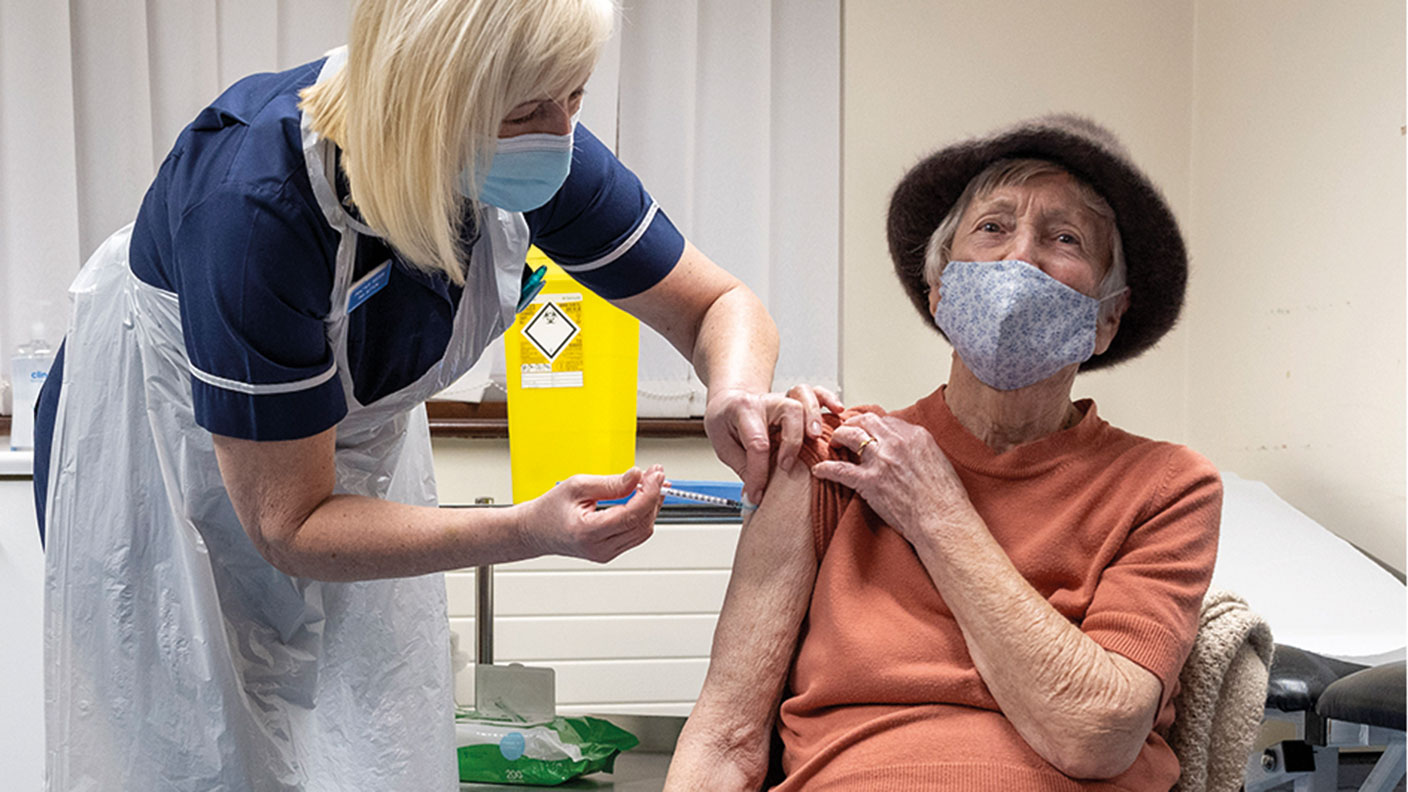The mistakes pharmaceutical companies made with their Covid vaccines
Covid-19 looked as if it would mark the start of a golden age for the pharmaceutical industry. It’s not worked out that way, says Matthew Lynn.


Get the latest financial news, insights and expert analysis from our award-winning MoneyWeek team, to help you understand what really matters when it comes to your finances.
You are now subscribed
Your newsletter sign-up was successful
Want to add more newsletters?
Rewind only a year, and it seemed reasonable to assume that Covid-19 would transform the prospects of the major pharmaceutical multinationals.
Three safe and effective vaccines were developed in a year; regulators worked at record speed to get them approved and governments pre-bought doses in the millions to ramp up production – perhaps the same would happen for a whole range of other diseases.
Investors started pouring money into both the established giants and the biotech start-ups on the promise that the industry was about to enter a new golden era.
Try 6 free issues of MoneyWeek today
Get unparalleled financial insight, analysis and expert opinion you can profit from.

Sign up to Money Morning
Don't miss the latest investment and personal finances news, market analysis, plus money-saving tips with our free twice-daily newsletter
Don't miss the latest investment and personal finances news, market analysis, plus money-saving tips with our free twice-daily newsletter
What went wrong?
True, a lot of money has been made over the last couple of years. Pfizer’s jab, the most widely used, has been a blockbuster, delivering annualised sales of $37bn, almost doubling its turnover, and turning the jab into the biggest pharmaceutical product in the world. Moderna and AstraZeneca did not make quite so much, but still chalked up nine-digit revenues for their vaccines.
And yet, despite that, there is not much sign that progress can be sustained – the share prices of many of the main players have been tumbling. True, the wider stockmarket has also been weak, especially for innovative, technology-based companies, but even so, there is no escaping the fact that Covid-19 is not turning into a catalyst for rapid growth in the industry. No one is making a fortune out of Covid-19 anymore.
There were three big issues. First, the Omicron variant was more infectious, but at least somewhat milder than the Delta variant, and it only partly evaded existing vaccines. There was almost no way of stopping it from spreading, but fortunately very few vaccinated people who caught it required hospitalisation. Sure, it was still sensible to get vaccinated, and to get a booster as well, but the demand for the jabs inevitably started to wane. Flu vaccines are a major product, but in reality most people don’t bother because they are not that worried about catching it. As 2022 unfolded, Omicron meant Covid-19 was starting to go the same way.
Next, vaccination kills its own market. It is a paradox of developing and manufacturing vaccines that, the more successful they are, the less demand there ends up being. At the most extreme level, the disease is completely wiped out so that no one needs to worry about it anymore: polio has been largely eliminated from the developed world and measles and mumps have been tamed. Some of the drug companies are pushing for annualised vaccination against Covid-19, especially for the elderly or vulnerable, but it is starting to look as if two or three jabs will be enough. Almost all of us have been vaccinated now, and that means the demand isn’t there any longer.
Too greedy for their own good
Finally, and most importantly, the firms were too greedy. The AstraZeneca Oxford vaccine was the obvious exception, sold at cost price, but Moderna and Pfizer both pushed for very high prices, charging health systems as much as $30 per jab.
That now looks to have been a critical mistake; the wealthy countries could afford it, but the vaccines were unaffordable for many others, and countries have relied on home-grown alternatives, or opted for herd immunity instead. Even worse, it fuelled demands for the companies to be stripped of patent protection. It would have been far better to charge just two or three dollars per jab and make sure the whole world was vaccinated. Instead, the companies put short-term profits over building a long-term business.
The virus might bounce back. Hong Kong is in the middle of a full-blown epidemic and there are signs it is spreading across mainland China. If China were willing to admit its own vaccines were not very effective, and ordered the Pfizer or AstraZeneca jabs instead, that would revive the market. Otherwise, the boom has fizzled out. The pharma industry may have imagined it was going to make a fortune from the virus and start a new golden era of innovation. It has not worked out that way – and the industry looks stuck with modest growth at best for a long time to come.
Get the latest financial news, insights and expert analysis from our award-winning MoneyWeek team, to help you understand what really matters when it comes to your finances.

Matthew Lynn is a columnist for Bloomberg and writes weekly commentary syndicated in papers such as the Daily Telegraph, Die Welt, the Sydney Morning Herald, the South China Morning Post and the Miami Herald. He is also an associate editor of Spectator Business, and a regular contributor to The Spectator. Before that, he worked for the business section of the Sunday Times for ten years.
-
 Iran conflict: What are your rights if you’ve got travel insurance?
Iran conflict: What are your rights if you’ve got travel insurance?US involvement in Iran and the consequent fallout across the Middle East has caused chaos to many people’s travel plans – we reveal your rights if you’re impacted.
-
 What do rising oil prices mean for you?
What do rising oil prices mean for you?As conflict in the Middle East sparks an increase in the price of oil, will you see petrol and energy bills go up?
-
 Three Indian stocks poised to profit
Three Indian stocks poised to profitIndian stocks are making waves. Here, professional investor Gaurav Narain of the India Capital Growth Fund highlights three of his favourites
-
 UK small-cap stocks ‘are ready to run’
UK small-cap stocks ‘are ready to run’Opinion UK small-cap stocks could be set for a multi-year bull market, with recent strong performance outstripping the large-cap indices
-
 Hints of a private credit crisis rattle investors
Hints of a private credit crisis rattle investorsThere are similarities to 2007 in private credit. Investors shouldn’t panic, but they should be alert to the possibility of a crash.
-
 Investing in Taiwan: profit from the rise of Asia’s Silicon Valley
Investing in Taiwan: profit from the rise of Asia’s Silicon ValleyTaiwan has become a technology manufacturing powerhouse. Smart investors should buy in now, says Matthew Partridge
-
 ‘Why you should mix bitcoin and gold’
‘Why you should mix bitcoin and gold’Opinion Bitcoin and gold are both monetary assets and tend to move in opposite directions. Here's why you should hold both
-
 Invest in the beauty industry as it takes on a new look
Invest in the beauty industry as it takes on a new lookThe beauty industry is proving resilient in troubled times, helped by its ability to shape new trends, says Maryam Cockar
-
 Should you invest in energy provider SSE?
Should you invest in energy provider SSE?Energy provider SSE is going for growth and looks reasonably valued. Should you invest?
-
 Has the market misjudged Relx?
Has the market misjudged Relx?Relx shares fell on fears that AI was about to eat its lunch, but the firm remains well placed to thrive